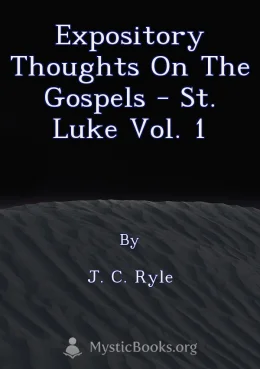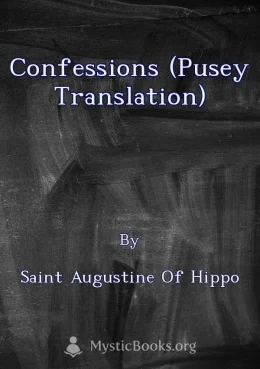
The Imitation of Christ
'The Imitation of Christ' Summary
Book One of the Imitation is titled "Helpful Counsels of the Spiritual Life". The Imitation derives its title from the first chapter of Book I, "The Imitation of Christ and contempt for the vanities of the world" (Latin: "De Imitatione Christi et contemptu omnium vanitatum mundi"). The Imitation is sometimes referred to as Following of the Christ, which comes from the opening words of the first chapter—"Whoever follows Me will not walk into darkness." Book One deals with the withdrawal of the outward life—so far as positive duty allows and emphasizes an interior life by renouncing all that is vain and illusory, resisting temptations and distractions of life, giving up the pride of learning and to be humble, forsaking the disputations of theologians and patiently enduring the world's contempt and contradiction.
Kempis stresses the importance of solitude and silence, "how undisturbed a conscience we would have if we never went searching after ephemeral joys nor concerned ourselves with affairs of the world..." Kempis writes that the "World and all its allurements pass away" and following sensual desires leads to a "dissipated conscience" and a "distracted heart" (Chap. 20). Kempis writes that one should meditate on death and "live as becomes a pilgrim and a stranger on earth...for this earth of ours is no lasting city" (Chap. 23). On the Day of Judgement, Kempis writes that a good and pure conscience will give more joy than all the philosophy one has ever learned, fervent prayer will bring more happiness than a "multi-course banquet", the silence will be more "exhilarating" than long tales, holy deeds will be of greater value than nice-sounding words (Chap. 24).
Kempis writes one must remain faithful and fervent to God, and keep good hope of attaining victory and salvation, but avoid overconfidence. Kempis gives the example of an anxious man who, oscillating between fear and hope and with grief went to the altar and said: "Oh, if only I knew that I shall persevere to the end." Immediately he heard the divine answer, "What if you knew this? What would you do? Do now what you would do then, and you will be very safe." After this the man gave himself to God's will, and his anxiety and fear of future disappeared (Chap. 25).
Book Details
Language
EnglishOriginal Language
LatinPublished In
1427Authors

Thomas a Kempis
Holy Roman Empire
Thomas à Kempis was a German-Dutch canon regular of the late medieval period and the author of The Imitation of Christ, one of the most popular and best known Christian devotional books. His na...
Books by Thomas a KempisDownload eBooks
Listen/Download Audiobook
- Select Speed
Related books

Itinéraire de Paris à Jérusalem by François-René de Chateaubriand
This book is an illustrated travelogue of François-René de Chateaubriand's journey from Paris to Jerusalem in 1806-1807. Chateaubriand was a French wr...

Expository Thoughts on the Gospels - St. Luke Vol. 1 by J. C. Ryle
This volume contains the first half of J.C. Ryle's commentary on the Gospel of Luke. It is divided into sections of about twelve verses each, with two...

On the Babylonian Captivity of the Church by Martin Luther
Prelude on the Babylonian Captivity of the Church was the second of the three major treatises published by Martin Luther in 1520, coming after the Add...

Brilliant Proof (Burhäne Lämé) in reply to an attack upon the Bahai Revelation by Peter Z. Easton by Mírzá Abu’l-Fadl Gulpáygání
This book, written by the prominent Bahá’í scholar Mírzá Abu’l-Fadl, serves as a defense of the Bahá’í Faith against criticism. It specifically addres...

Commentary on the Gospel of John. Book 10 by Cyril of Alexandria
This book, Commentary on the Gospel of John, offers an in-depth analysis and interpretation of John 14:21 to 16:13. Cyril of Alexandria presents his i...

Confessions (Pusey translation) by Saint Augustine of Hippo
The Confessions outlines Augustine's sinful youth and his conversion to Christianity. It is widely seen as the first Western autobiography ever writte...

The Unconditional Freeness of the Gospel by Thomas Erskine
The book discusses the concept of the Gospel and its freedom from any conditions. Erskine argues that salvation is a free gift from God and is not bas...

Catholic and Anti-Catholic History by Various
G.K. Chesterton and James Walsh join Hilaire Belloc in an energetic rollout of the means by which history becomes propaganda, to the damage, not only...

Bible (YLT) 38-39: Zechariah and Malachi by Young's Literal Translation
Young's Literal Translation is a translation of the Bible into English, published in 1862. The translation was made by Robert Young, compiler of Young...

Spiritual Antidote against Sinful Contagion in Dying Times by Thomas Doolittle
This work by Thomas Doolittle, written in the midst of a plague epidemic, serves as a spiritual guide and exhortation. It offers solace and encouragem...
Reviews for The Imitation of Christ
No reviews posted or approved, yet...